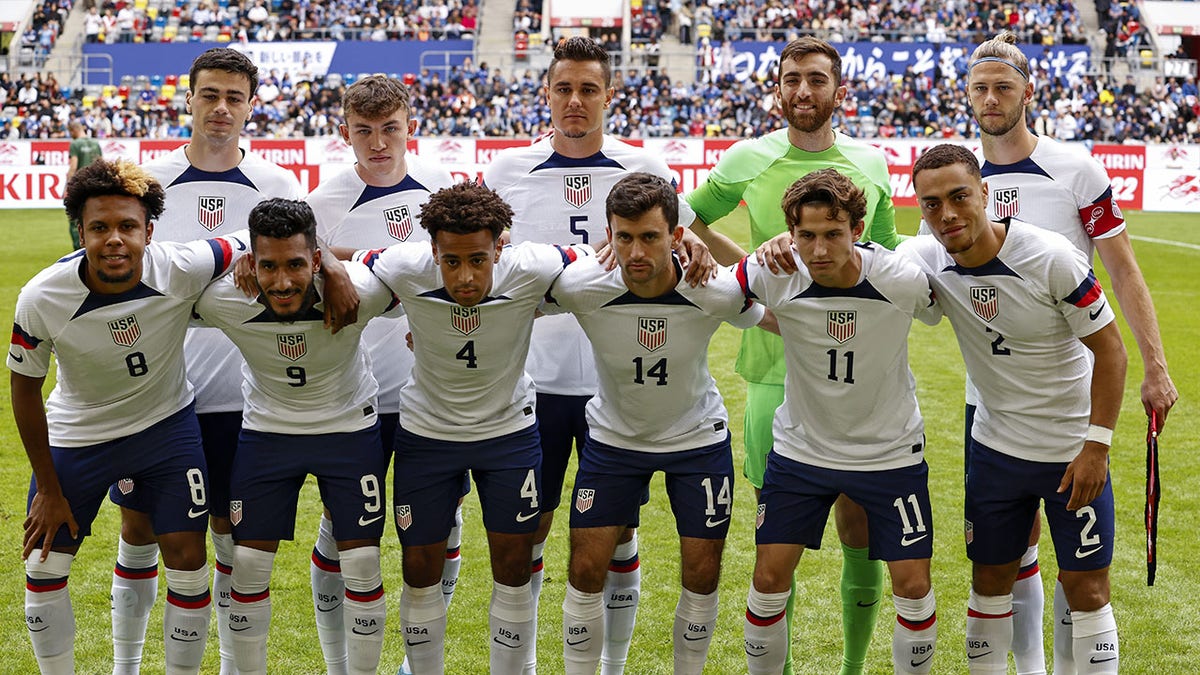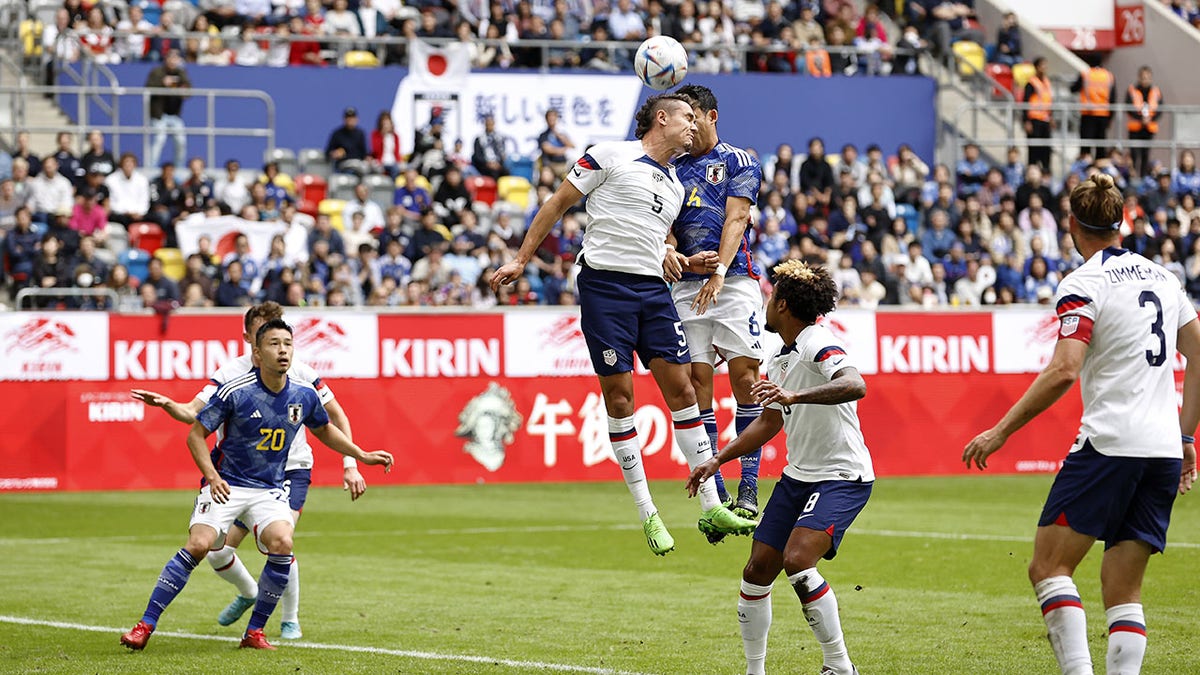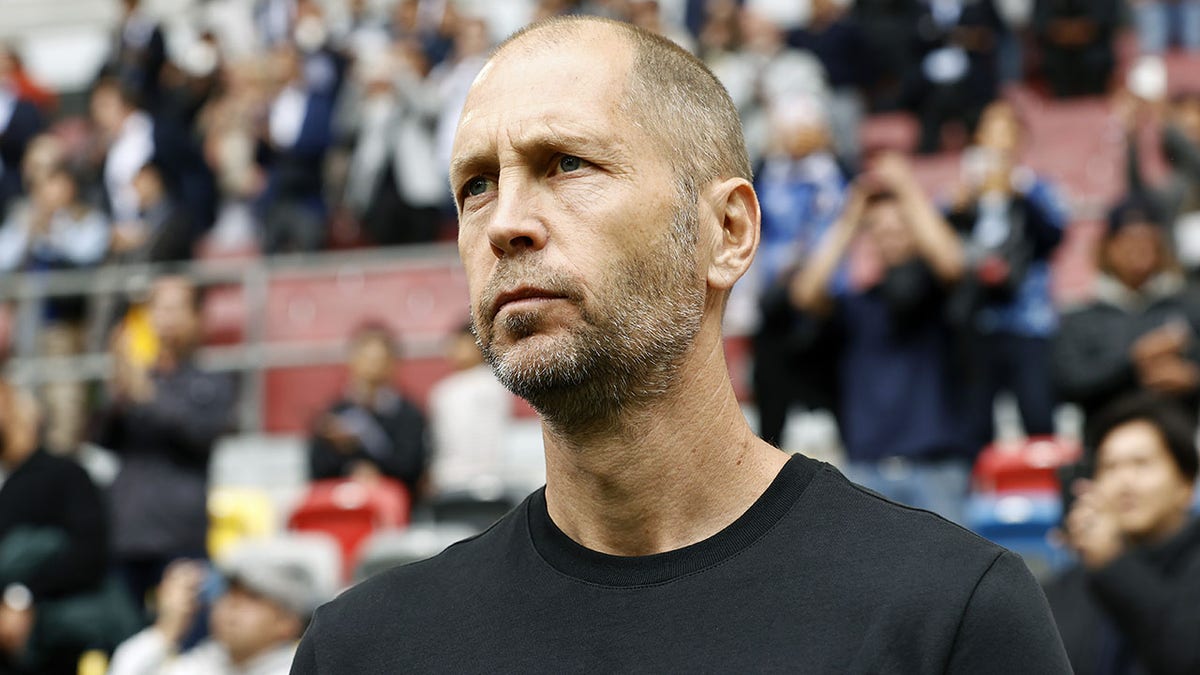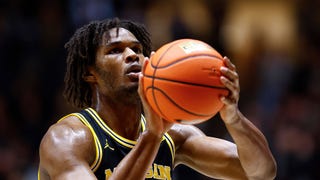Fox News Flash top sports headlines for November 19
Fox News Flash top sports headlines are here. Check out what's clicking on Foxnews.com.
DOHA – The United States is one of the few teams at the World Cup to have no official nickname, which is a mild shame, as well as something that likely won't change any time soon.
While Cameroon has the Indomitable Lions and Japan is Samurai Blue and Spain La Furia Roja, the USA has to make do with its plain old title, even if the Stars-and-Stripes and the Red-White-and-Blue are occasionally, and casually, used.

(Top Row LR) Gio Reyna of United States men's national team, Sam Vines of United States men's national team, Aaron Long of United States men's national team, United States men's national team goalkeeper Matt Turner, Walker Zimmerman of United States men's national team(Front row LR) Weston McKennie of United States men's national team, Jesus Ferreira of United States men's national team, Tyler Adams of United States men's national team, Luca de la Torre of United States men's national team, Brenden Aaronson of United States men's national team, Sergino Dest of United States men's national team during the Japan-United States International Friendly Match at Dusseldorf Arena on September 23, 2022 in Dusseldorf, Germany. (Photo by ANP via Getty Images)
However, if the early stage of this World Cup is navigated successfully, it might be time for a temporary moniker to be bestowed upon coach Gregg Berhalter's group:
The Night Owls.
During the opening round of matches that will halve the field of 32, most games are spread out over four playing windows, beginning in the witching hours Stateside, but held at 1 p.m., 4 p.m., 7 p.m. and 10 p.m. in Qatar.
All three of the Americans' group stage matches — their opener against Wales on Monday, Nov. 25 against England and the final group match against Iran on Nov. 29 — begin at the same time: 10 p.m. local.
"Never played a professional game [that late]," U.S. star Christian Pulisic said. "Ten is a bit crazy for sure."
Added winger Gio Reyna: "I've never played a game that late in my life ever. But Champions League is at 9, so it's not too far off. But to have three consecutive games at 10 p.m. is something completely different than I think anyone has done here."
Naturally, they are figuring out how to navigate those late starts.

(lr) Yuta Nakayama of Japan, Aaron Long of United States men's national team, Wataru Endo of Japan, Weston McKennie of United States men's national team during the Japan vs. United States International Friendly at Dusseldorf Arena on September 23, 2022 in Dusseldorf, Germany. (ANP via Getty Images)
"I think as the game comes around, we'll slowly just delay our times and treat it as if the game was an evening game and start our day a bit later," Pulisic said. "We're not going to be waking up at 7 [a.m.] and waiting around all day. I think that's sort of the plan.
"It's weird. It's strange. But I think it's good for us, as well, as far as the temperature will be nice and everything."
CLICK HERE FOR MORE SPORTS COVERAGE ON FOXNEWS.COM
Indeed, given the heat in the desert oasis, even during winter in the Middle East and with all eight stadiums being climate-controlled, there is a school of thought that playing in the latest of those spots is a distinct advantage.
"I think the schedule helps the U.S. a lot," former national team star and FOX analyst Landon Donovan said. "World Cup games in the daytime are totally different. The atmosphere at night is different.
"And it is definitely much cooler at night. I don't think the late kickoffs will be a problem at all. They will just adjust their schedule to later in the day."
Science backs up the advantage too.
"The environmental conditions could play into the USA's favor over the first three games," FOX Sports' Dr. Matt Provencher said. "Everything is on a compressed schedule and being able to recover most efficiently is where the advantage lies. The 10 p.m. games figure to be more manageable. Having that consistency can also help them settle into a comfortable sleep schedule."
No other team in the tournament is similarly graced. In fact, 10 teams won't get a single 10 p.m. game, including host nation Qatar. Thirteen teams play the night slot only once. Ten of them do so twice, including big names such as Brazil, Germany, Spain, England, Argentina and Mexico. So they'll have to deal with daytime heat.

United States men's national team coach Gregg Berhalter during the Japan vs. United States International Friendly match held at the Dusseldorf Arena on September 23, 2022 in Dusseldorf, Germany. (ANP via Getty Images)
Berhalter, meanwhile, has had the luxury of being able to stage training sessions in the evening, with no need to have his players adapt to daytime conditions. Not so for England's Gareth Southgate, who put his team on the field at 12:30 p.m., the hottest part of the day, earlier this week.
"It was hard," England defender Conor Coady told reporters. "It was a long session, and it was something we needed as a team to get used to it, to feel it, to understand it. It's something we want to take on board as quickly as possible."
CLICK HERE TO GET THE FOX NEWS APP
Within its group, the US will see an advantage. Iran has a widely varied schedule; its start times being 4 p.m., 1 p.m. and 10 p.m. Wales plays its first and third games at night, but has a matinée 1 p.m. clash with Iran sandwiched between.
Provencher said teams with disjointed kickoff times may struggle to manage their rest requirements.
"Playing at 1 p.m. or 10 p.m. is a very different bodily process in terms of preparation," he said.
But playing late could also provide a morale boost.
"There is a practical advantage to playing at 10 p.m.," FOX soccer analyst Alexi Lalas said. "Players tend to like night games more. Berhalter will say, ‘Hey guys, there is a reason we are playing so many night games, it is so millions and millions of people can watch you and support you.' That's powerful."
If the Americans manage to win Group B – it should be noted that England is a strong favorite to do so – Berhalter's men would not play any matches outside of the 10 p.m. window, unless they reached the final, which is to be held at 6 p.m. local time on Dec. 18. A second-place group finish would lead to a 6 p.m. start in the round of 16, then a 10 p.m. quarterfinal if survived.
There is, of course, at least one obvious downside to the 10 p.m. starts. Winding down, recovering and falling asleep after a high-intensity World Cup match will be a whole other story.
"Oh, god," Reyna said. "I mean, I have trouble falling asleep after 3:30 [p.m.] games, so for a 10 p.m. game, I can't even imagine how long it's going to take me to fall asleep."









































